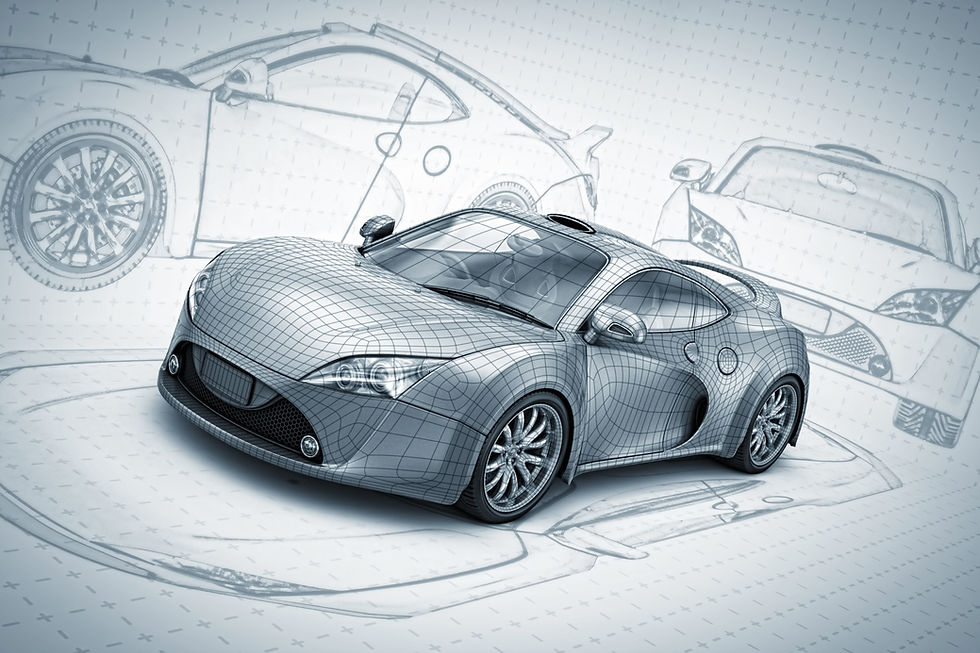Electric Vehicle Revolution: Is 2030 the Tipping Point for Mass EV Adoption Worldwide?
- INPress Intl Editors

- Mar 14, 2024
- 3 min read
Updated: Sep 4, 2025

The global transition to electric vehicles (EVs) has gained unprecedented momentum in recent years. But will this critical decade see EVs finally reach mainstream adoption worldwide and start to replace combustion engines en masse?
Key automakers and nations have staked their ambitions on major EV expansion by 2030. The European Union proposed an effective ban on new gasoline vehicle sales by that year. Several automakers including General Motors, Jaguar Land Rover and Volvo have pledged to go fully electric in Europe between 2025-2030. China, the world's largest car market, aims for 25% of new car sales to be electric by 2025.
If realized, such measures could mark a historic tipping point propelling EVs beyond novelty to become the new normal. But meeting mid-decade milestones faces multiple challenges requiring coordinated efforts to accelerate and expand supporting infrastructure.
Supply chain vulnerabilities remain a pressing concern. With surging demand straining lithium, nickel and cobalt supplies essential to batteries, automakers warned stockpiles may not meet long-term EV production targets. Geopolitical reliance on mining nations like the Democratic Republic of Congo brings instability risks. Raw material security and diversified domestic supply chains have become strategic priorities for industry and policymakers.
Accelerating the buildout of public charging infrastructure lags far behind vehicle adoption trends in many markets. While home charging meets the needs of suburban EV owners, urban residents relying on street parking require a denser commercial network. City planners face difficult decisions on electric grid upgrades as transportation electrification ramps up.
Affordability remains a hurdle to mainstream potential EV buyers, with high battery costs inflating upfront prices. While total cost of ownership over the lifetime of an electric car is comparable or lower than gasoline counterparts due to cheaper operating costs, the large upfront premium deters budget-conscious consumers.
Automakers are working aggressively to address these challenges. Major auto shows over the past year saw a striking proliferation of new EV models and concepts announced, confirming their strategic commitment to electrification. Advancements in battery chemistries, cathode material compositions and manufacturing processes are extending vehicle range while driving down costs. Meanwhile government incentives aim to drive demand and investments in charging infrastructure are expanding access.
With the commercial transportation sector electrifying as well, momentum is building toward an inflection point. Countries with ambitious targets have implemented policy carrots and sticks to ensure progress. Failure to deliver risks alienating environmentally-conscious customers and falls short of urgent climate goals. Sustained policy and technological innovation will determine if this decade converts ambitions into reality.
One hopeful sign is evolving consumer attitudes. As EVs gain broader appeal and performance improves, they appeal not just to early adopters but average drivers as well. Recent studies found an increasing percentage of new vehicle buyers are open to considering EVs, with younger generations the most open to ditching gas. If emissions regulations tighten vehicle fleets' environmental footprints, public support may snowball.
2030 remains a substantial challenge away in the transition timeline. But with automakers unleashing new EV muscle and public charging infrastructure slowly filling gaps, all signs point to this being a make-or-break decade determining if the electric revolution transforms from promise to reality. Policy alignment, technological progress and dynamic consumer evolution could yet see the 2020s as the period EVs transition from niche to norm worldwide, heralding profound changes for the auto industry and energy landscape. But systemic challenges still require coordinated solutions if adoption ambitions are met.
.png)









Comments